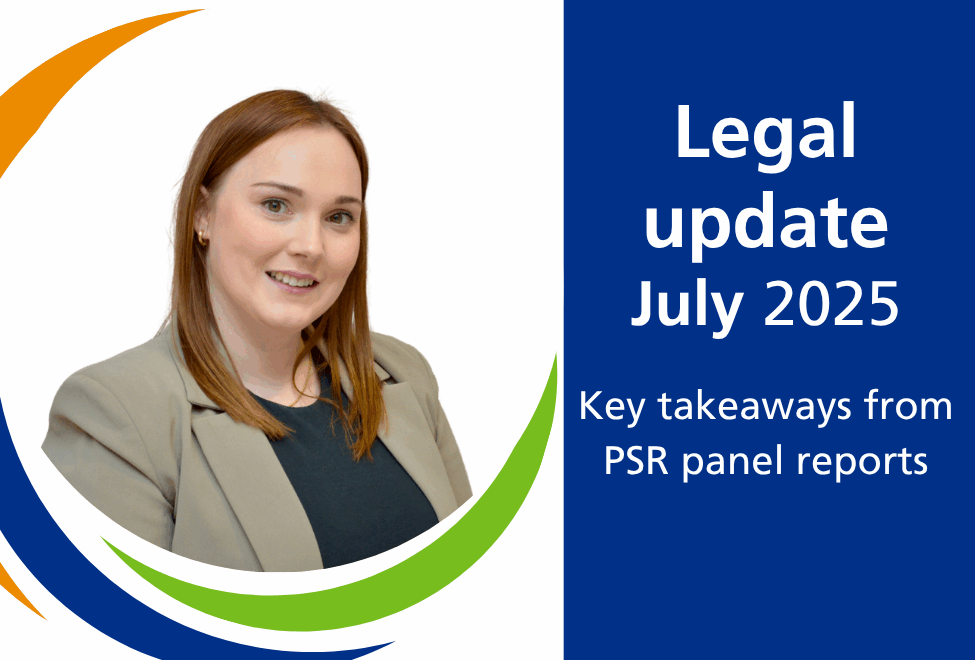Key takeaways from the recent Provider Selection Regime panel reports
The Provider Selection Regime (PSR) introduced the Independent Patient Choice and Procurement Panel to review representations in relation to PSR as well as patient choice complaints.
The PSR differs from both PCR (Public Contracts Regulations 2015) and PA23 (Procurement Act 2023) in that there is no right to bring a procurement challenge; while in theory a judicial review could be brought the bar is much higher for this. As such, the Panel is the only practical route open to aggrieved suppliers when they do not agree with the initial response from the Contracting Authority on their challenge.
Since the Panel’s inception, we have seen 14 published reports with another four due to be published shortly. The reports provide a useful tool to understanding how aspect of the PSR should be interpreted. While they do identify many flaws in decision making (by the supplier and contracting authority alike!), they also show where the process has been followed correctly.
Here are some key takeaways from the recent panel reports to help you on your PSR journey.
Have you chosen the correct route to market?
With five award options, it may sometimes be difficult to identify which route should be used. While there are differing reasons for why each should be used, there is an element of individual interpretation.
Within case CR0016-25, we see the panel comment on when Direct Award C has been used incorrectly. This was due to lack of evidence that the considerable change threshold had not been met, and that when considering the key criteria, the lack of key analysis did not support that the incumbent has satisfied the original contract or would be able to satisfy the proposed contract.
The report highlights that an authority’s capacity to do a full review can often be limited. In response to this, we recommend you ensure that you review contracts throughout their lifetime against the key criteria, to lighten the review needed when coming to reward.
Also as noted within the report, identify which contracts will require a more in-depth review than others. While capacity to review may be limited, having to rerun a process due to not spending the time upfront could be worse!
Do your records stand up to scrutiny?
One of the takeaways from the reports is the importance of record keeping; you need to be able to justify all decisions that were made and evidence that the rules were followed.
In many of the cases the records did not stand up to scrutiny. Even in situations where an authority feels its decision was correct, with no evidence, it calls into question how the decision was made and whether due process was followed.
In a recent case report (CR0020-25), the panel specifically drew a recommendation in keeping detailed notes of moderations meetings. This allows both bidders and the internal and independent review panels to follow the reasoning that led to the decisions – this is an area that is useful to remember under the PA23 as well!
A duty to share information?
The regulations set out a duty to promptly respond (Regulation 12) when a representation comes in and to share information where you have a duty to record information (Regulation 24)
Within case CR0018-25 specifically but also in other cases, it is clear these regulations are not always followed. Under procurement regulations, providing full moderation or evaluation notes is not a usual requirement. However, this is not the case under PSR; unless the information falls under an exception (as set out in Regulation 12(5)), then evaluator and moderator feedback should be shared.
It’s not just about what is shared however, but also when. By delaying sharing bits of information that would allow to the supplier to explain or clarify, the representation would been seen as not providing a prompt response. While the regulations do not state what is classed as ‘promptly’, it’s clear it would need to be proportionate and fair to both what is being asked and the supplier asking. Hopefully over time we will see more examples of what is and isn’t seen as prompt through these panel reports.
